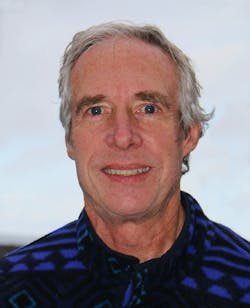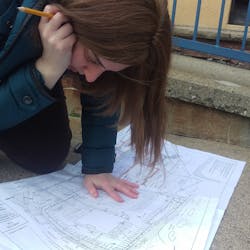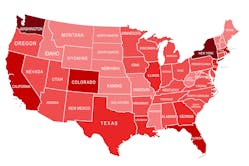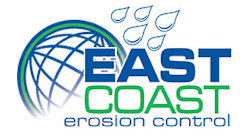In the months since the novel coronavirus SARS-CoV-2 became a global pandemic, it sometimes feels like everything has changed. The disease caused by the virus, COVID-19, has a long incubation period, is very contagious, and poses serious risks, especially to those with underlying health conditions and the elderly. It’s also new enough that no one had natural immunity when the pandemic broke out and researchers have been scrambling to understand the virus, find and test treatments, and develop a vaccine.
The situation around the country is changing rapidly, often daily. At the time of writing, 41 states, including California, Washington, New York, Texas, and Florida, are under active stay-at-home orders in an effort to keep infection rates low and avoid overwhelming hospital systems. For those who are able, that means working from home. For others, it can mean (hopefully) temporary unemployment as non-essential businesses like restaurants, shops, and bars are forced to close. Meanwhile, essential workers and businesses are implementing safety practices as best they can and attempting to go about their business.
The stormwater and erosion control industry includes a broad variety of professionals, from researchers and consultants to contractors, manufacturers, and regulators. Some may be able to transition to working from home relatively easily, while others may see reduced hours, new social-distancing restrictions, or even canceled projects and facility closures.
Clear Creek Solutions is a small company, which has made working from home relatively easy. “The three of us at Clear Creek Solutions are working from our home offices,” he says. “Working from home hasn’t directly affected our work, but all of our planned in-person stormwater software presentations are currently on hold or being canceled.”
Cancellations, postponements, and moves to the digital world abound. The Water Environment Federation (WEF) has canceled its National Stormwater Symposium, instead offering online digital programming available for download. The Center for Watershed Protection’s 2020 National Watershed & Stormwater Conference was moved online this year, with presentations, panel discussions, and a virtual happy hour hosted on Zoom. At the University of Minnesota’s Erosion and Stormwater Management Certification Program, all events have been canceled and participants are being transferred to online classes.
For Clear Creek Solutions, it isn’t just in-person event and presentation cancellations that are challenging right now. “Many of our private and public clients are busy dealing with virus-related issues and problems and, as a result, it is becoming difficult to get quick responses and/or answers from them regarding existing and future projects,” Beyerlein says.
On the other side of the country, Ross Bruno, business development specialist for East Coast Erosion Control (ECE), has slightly different problems. “Our region of the country has to date been one of the most impacted areas of the United States—stay at home orders, medical resource shortages, and everything else 2020 nightmares are made of,” he says.
ECE designs, manufactures, and distributes erosion and sediment control products, including RECP blankets, sediment control rolls, and coir mats. The company is based in Bernville, PA, and has manufacturing facilities in Bernville and in Lake City, NC. “In the shadow of the United States’ pandemic epicenter,” he says, “our plants are on heightened alert, while East Coast Erosion products continue to be made safely and distributed across the country on a daily basis.”
Bruno says that despite regional business instructions, “local authorities see the importance in the short-term product availability and in the long-term health of our environment and downstream life-sustaining resources.” As a result, the company has been allowed to continue operations, albeit with more safety measures.
He explains that more of the team is now working remotely and distancing restrictions have been assigned to all manufacturing staff. For those on-site, ECE has staggered shift scheduling to reduce face-to-face interaction and reassigned personnel duties to increase on-site personnel spacing.
All ECE sites are closed to non-essential visitors, disinfection cleaning has been increased to a per shift frequency, and high-touch devicesBruno has seen effects on the industry beyond ECE as well. “Distributors with retail stores are closing to foot traffic but are still placing orders daily for shipment directly to installation sites. DOTs and civil engineers continue to plan projects for the warmer months to come. Many of these installation sites are expected (at this time) to remain operational and on schedule due to the fact that the essential infrastructure and stormwater duties are performed out of doors and in a manner that allows social distancing.”
Bruno says ECE strives to focus on the big picture. “We take the news and developments of each day for what they are, but we continue to set our eyes on the horizon.”
Still, adjusting to the new normal takes work. “Our biggest challenge to date has been the administrative considerations to keep our people safe,” admits Bruno. In addition to the previously mentioned safety measures, ECE also drafted and implemented an Infectious Disease Preparedness and Response Plan as part of the Master Safety Plan at all locations. “And of course, we took a look at daily operations and our fiscal commitments to mitigate the looming uncertainty,” Bruno explains. “Whether direct action is taken or not, continuation planning is an essential part of preparing our business to roll into COVID-19 and beyond.”
Rifka Malik, CPESC, CPE, is the owner and president of Sitework Estimating Services providing estimating, quantity takeoff, value engineering, and consulting services to the civil/site work industry. She lives in New York State, the current epicenter of the pandemic in the US. As of April 2, 2020, the number of deaths and infected was continuing to rise quickly, Malik says. “The first coronavirus case in New York was documented just over one month ago. The speed at which this deadly disease is spreading in my surrounding areas is terrifying.”
New York’s stay-at-home order went into effect on March 22, closing all non-essential business and construction sites. “I am a soleWhile most of Malik’s work still happens in her office, there have been adjustments. “I work on projects throughout the US as a site work/civil construction estimator. I also travel to attend conferences and to teach and present on my specialty multiple times a year,” she explains. “Naturally, I had to cancel my speaking engagements and other travels. Even on a day-to-day basis, I have lost my ability to perform site inspections, which is crucial in the estimating process.” But Malik is resourceful. “Need is the mother of invention. It is also the discoverer of many tools that have been there all along. It keeps us motivated to search, learn, and adapt,” she says. “In my case, I learned to use online visual tools such as Google Images. I had been using it for a while, but not to the extent that I do now.”
However, not everyone is as able to adjust as well to this new normal, she notes. “There is a lot of uncertainty in the construction industry at large. Many projects have been shut down, leaving a trail of unemployment. So many in the industry live from paycheck to paycheck, and not having the means to provide for essentials in such trying times is even harder,” she says. “The future of the construction industry is very uncertain. Investors are holding back, project managers are either forced to lockdown, want to lock down, or are uncertain about whether they will have the funds to pay their vendors and employees. There is a lot of speculation and fear. Those who are still working, even if they feel safe in their current situation, are worried about what the next day will bring.”
Back in Washington State, Beyerlein is similarly concerned that projects and funding may disappear. “Most of our work is funded by government agencies or private development companies,” he explains. “If funding dries up, like it did during the Great Recession, then our projects and revenue will decrease. Federal loans and other stimulus package money will help, but it is still questionable how much of that money will be available for stormwater-related projects and when that money will become available.”
Beyerlein is cautiously hopeful his state’s early response will yield positive results. “Locally the state of Washington appears to be ahead of other states in containing the spread of the virus,” he notes, “but it is too soon to know where this is all headed and how soon we will be able to return to something approaching ‘normal life.’”
ECE is responding to the uncertainty and change by focusing on the basics. “In the face of changing realities, business fundamentals become increasingly important,” says Bruno. “Our business approach will focus on fundamentals—communication, quality control, safety, and fiscal responsibility. This focus makes us less reactive and better prepared for whatever may become of our industry.”
Still, amidst all the uncertainty and change, there is still hope, optimism, and community. “Truthfully, and it may sound corny, but it is our industry itself that gives us hope,” says Bruno. “This is a manufacturing industry that is full of competitors but [they are] working together to further the industry as a whole.” He notes that there is a history of collaboration and investment in the industry. “Many of the major erosion control blanket manufacturers speak to each other often about the state of the industry. There is an annual ‘operations meeting’ at conferences where leaders of the various companies come together to talk about the state of the industry and its challenges on and off the manufacturing floor.”
Bruno is also reassured by the necessity and timelessness of the industry. “This industry is built on the needs of North American infrastructure and environmental stability,” he says. “These are forces that do not dissipate with tough times. In fact, they are often the economic drivers utilized to reverse economic hardships. Our industry will continue, recover, and eventually thrive in the wake of COVID-19.”
Malik has found hope in our shared humanity. She says that every day, she and her high school-aged son log on to watch a video posted by his principal with positive messages and encouragement. A recent one particularly resonated with her: Although we are all isolated, we are not alone. The entire world is in this together.
“Ultimately what gives me hope is the humanity in all of us,” she says. “I still choose to see the majority of humanity connected in its desire to make things better on every level. While we all suffer differently and hope differently, we are connected and together in all of it.”
Click here for Stormwater's ongoing coverage of COVID-19











